Striving for better working conditions
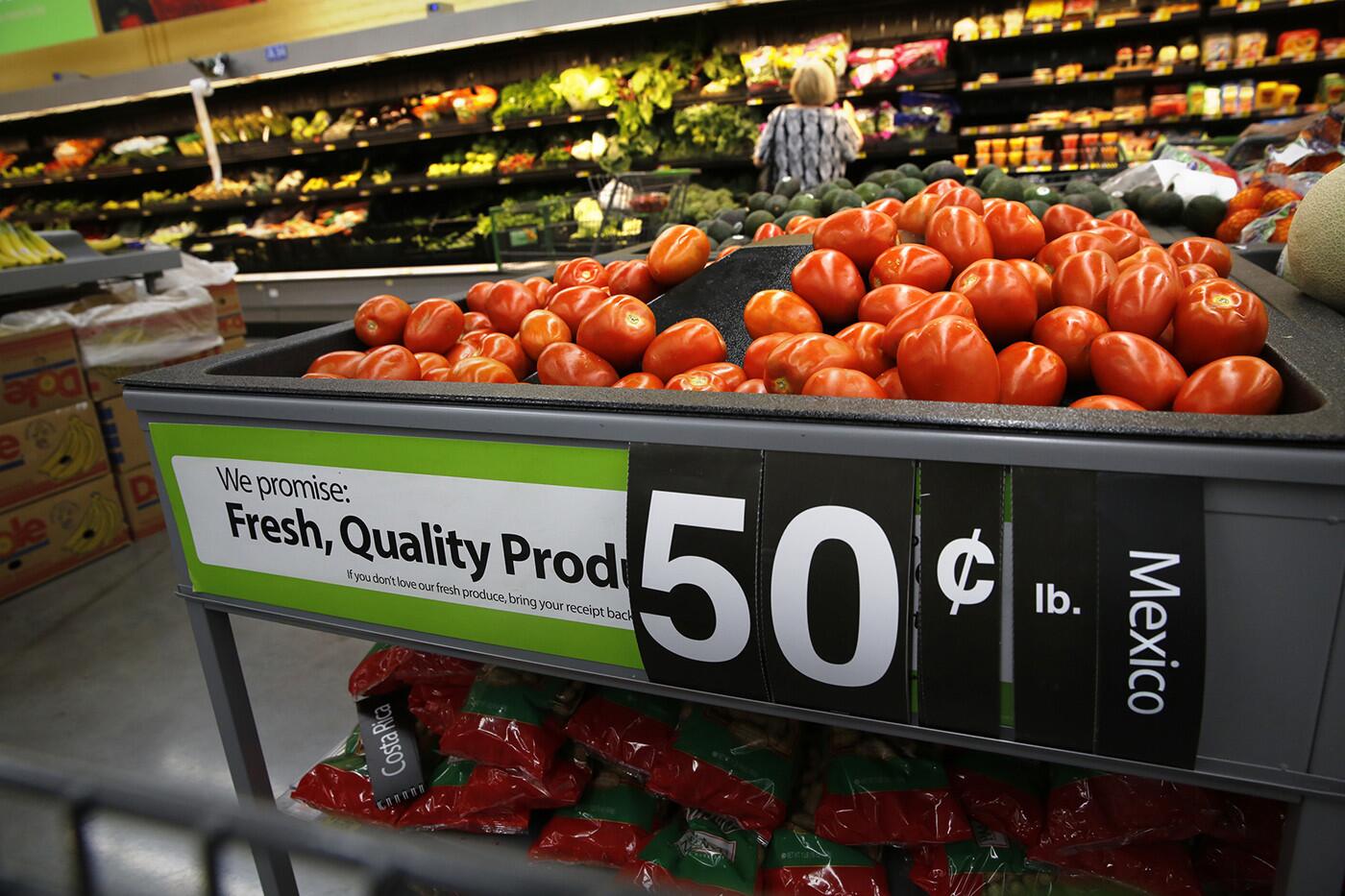
Roma tomatoes from Mexico on display in the produce section of a Wal-Mart store in San Marcos, Calif. The corporation sets stringent standards to ensure “fresh, quality produce” for its retail customers -- but health, and housing conditions for the people who pick the fruit on Mexican farms were found to be deplorable. (Don Bartletti / Los Angeles Times)
The Mexican government and Wal-Mart, the world’s largest retailer, have announced steps to improve the lives of the nation’s farmworkers.
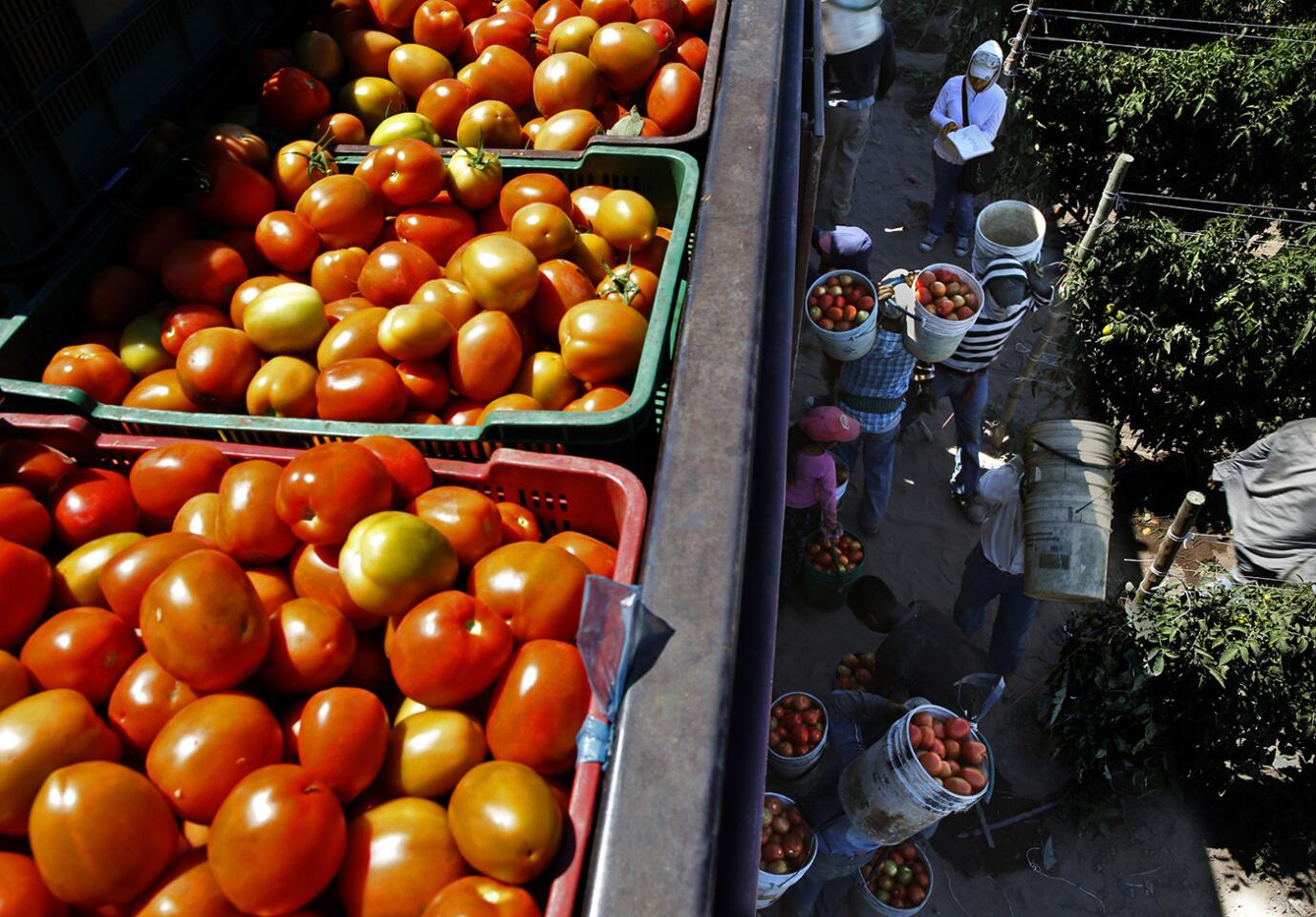
A tally clerk records each bucket of Roma tomatoes that will earn its picker about 10 cents. (Don Bartletti / Los Angeles Times)
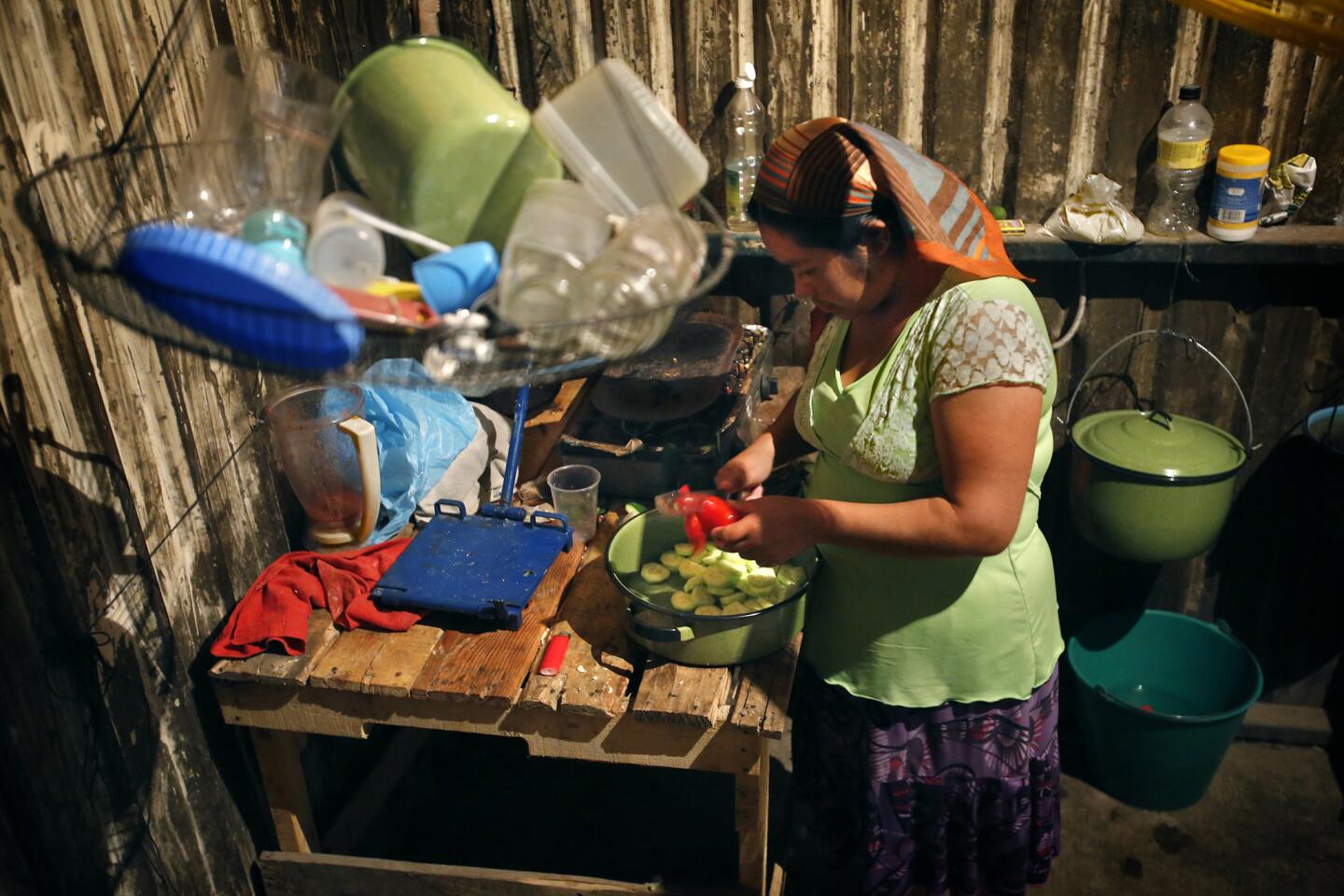
In her dilapidated room at Campo San Jose, migrant farm worker Marcelina Felipe Cruz - 32, slices tomatoes she purloined from a farm. She picks for Agricola Porvenir, a major exporter to Walmart stores in the United States. (Don Bartletti / Los Angeles Times)
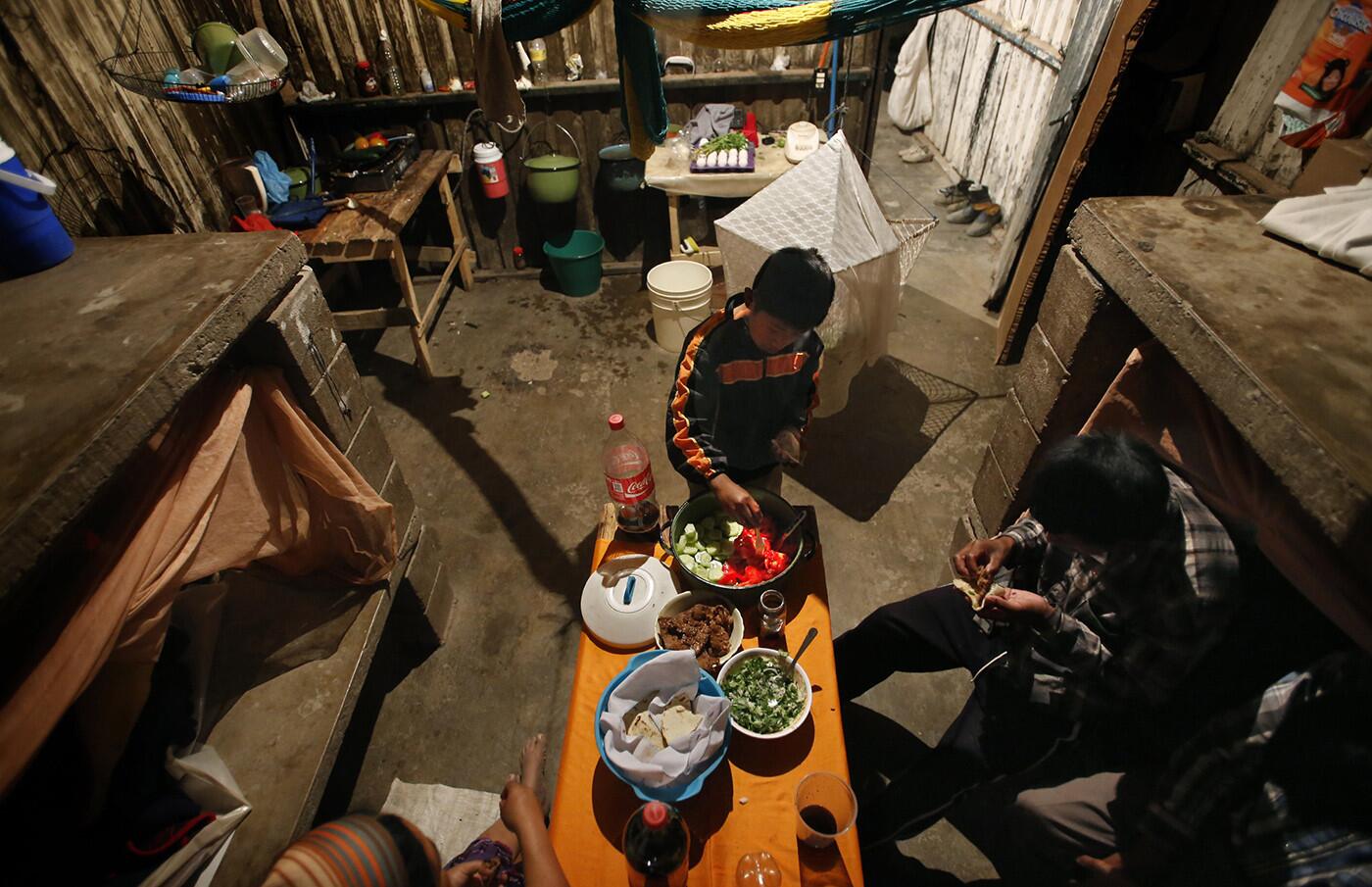
Ten-year-old Ediberto Marquez and his family eat supper in a dilapidated 12-by-12-foot room. Six days a week, they pick Roma tomatoes and cucumbers for a grower that exports to Walmart stores in the U.S. (Don Bartletti / Los Angeles Times)
Advertisement
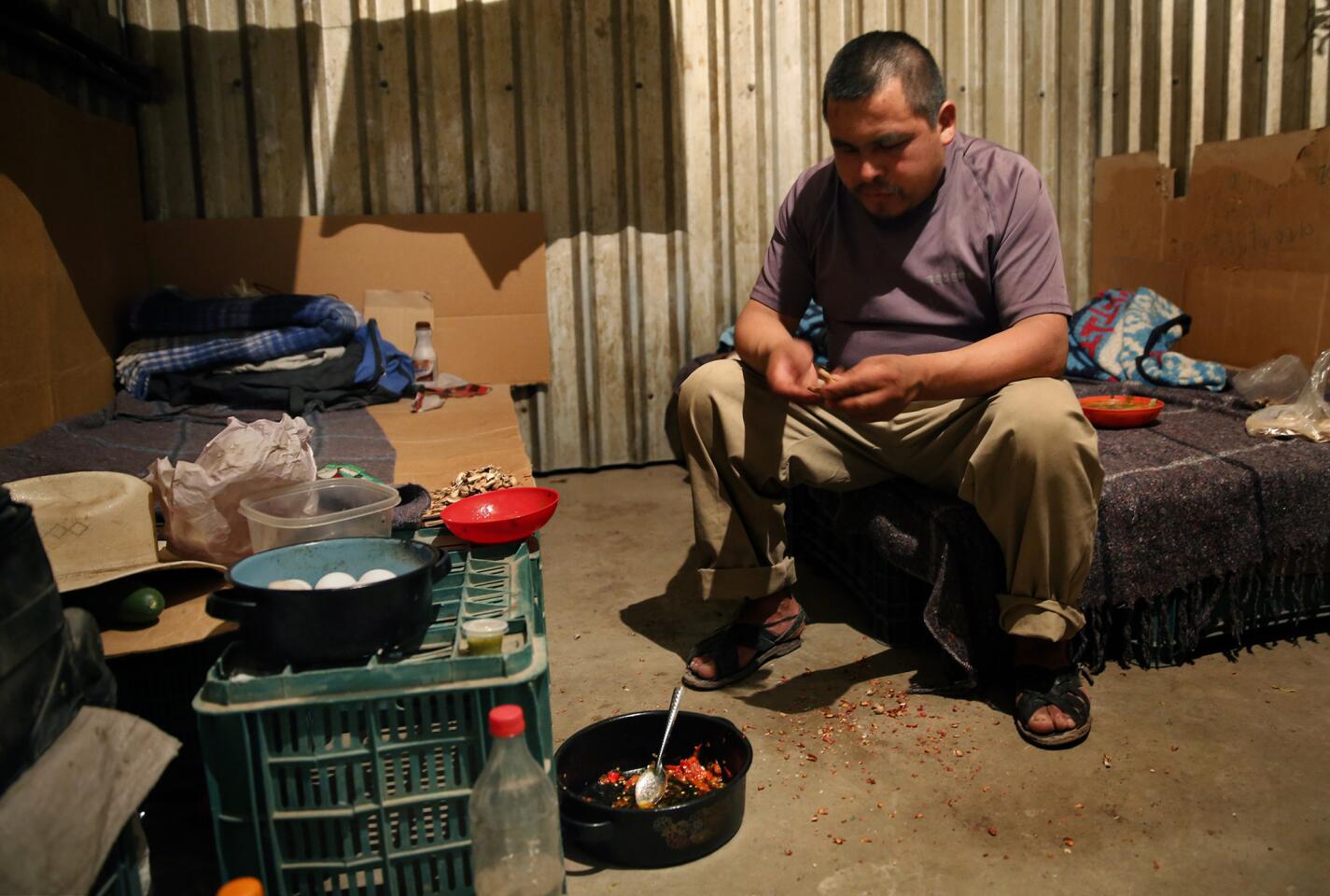
A farm worker sits on a cardboard “mattress” placed atop tomato crates in his unfurnished room at Campo San Emilio. Wal-Mart officers regularly inspect Agricola San Emilio’s tomato-growing and packinghouses but ignore the substandard housing conditions of laborers. (Don Bartletti / Los Angeles Times)
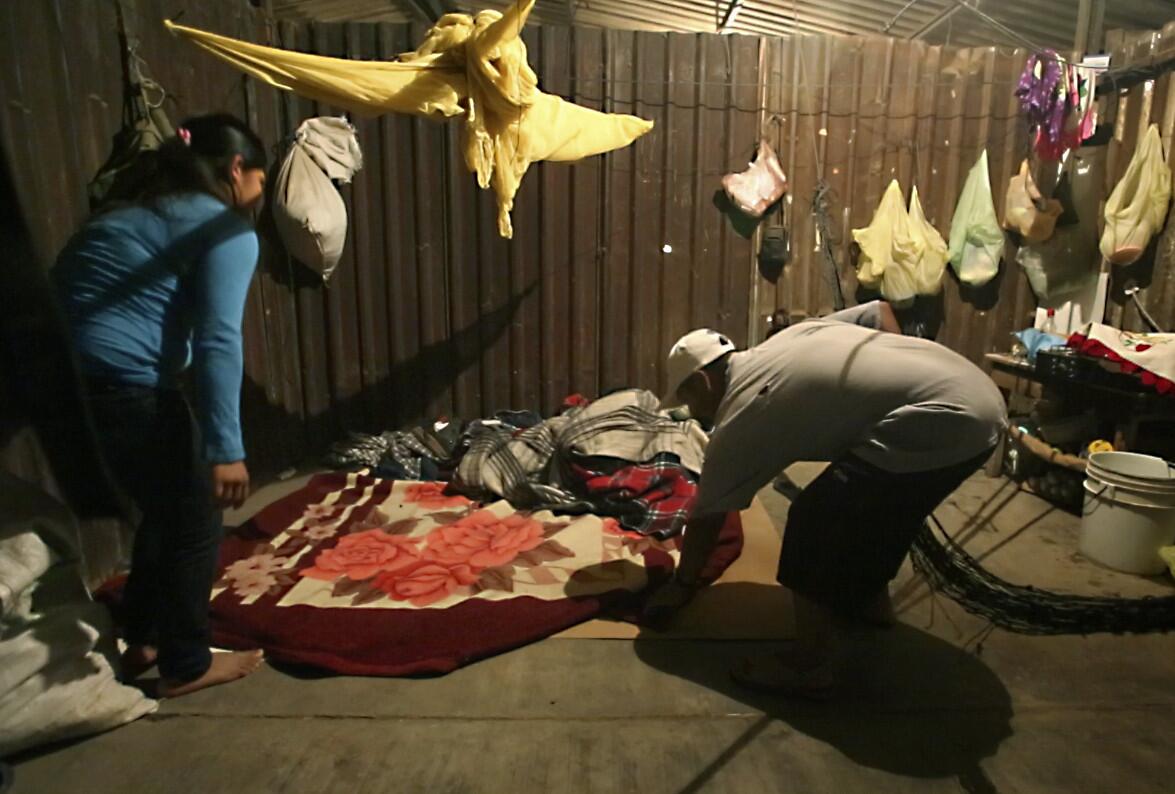
Fidel Tapia, right, makes his bed on the floor of Campo Isables, whose laborers work for Rene Produce. Reached by telephone in February after improvements were made he said, “We’ve never lived like we do now, thanks to” The Times’ coverage, said Tapia, a laborer at Rene. “We hope that things keep improving.” (Don Bartletti / Los Angeles Times)
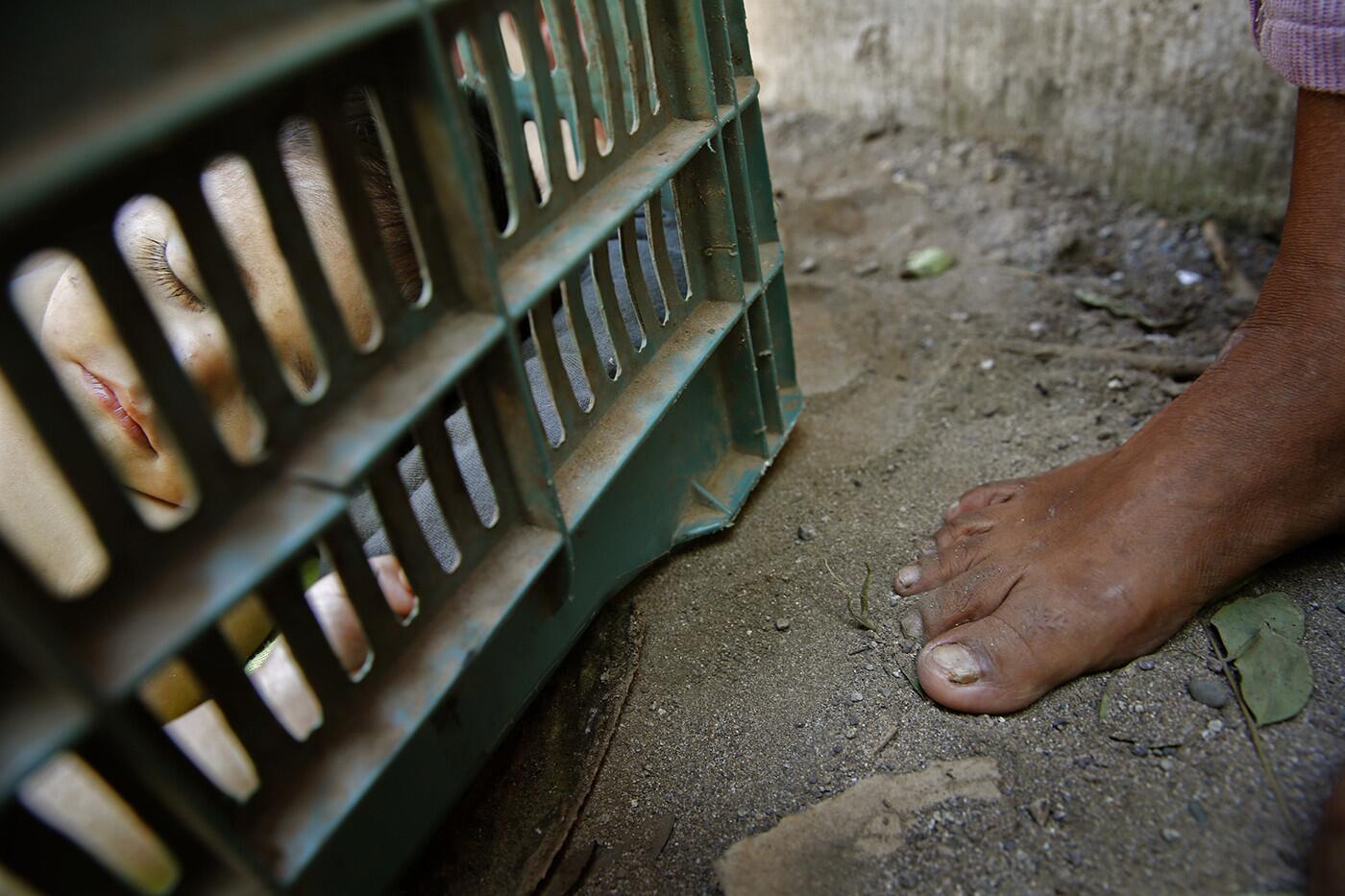
Using a tomato crate as a crib, 18-year-old farm worker Maria Petra Pacheco stands by her 1-year-old son Brian. The teenager’s itinerant family members work for about $1 an hour picking fresh table produce for U.S. markets. (Don Bartletti / Los Angeles Times)
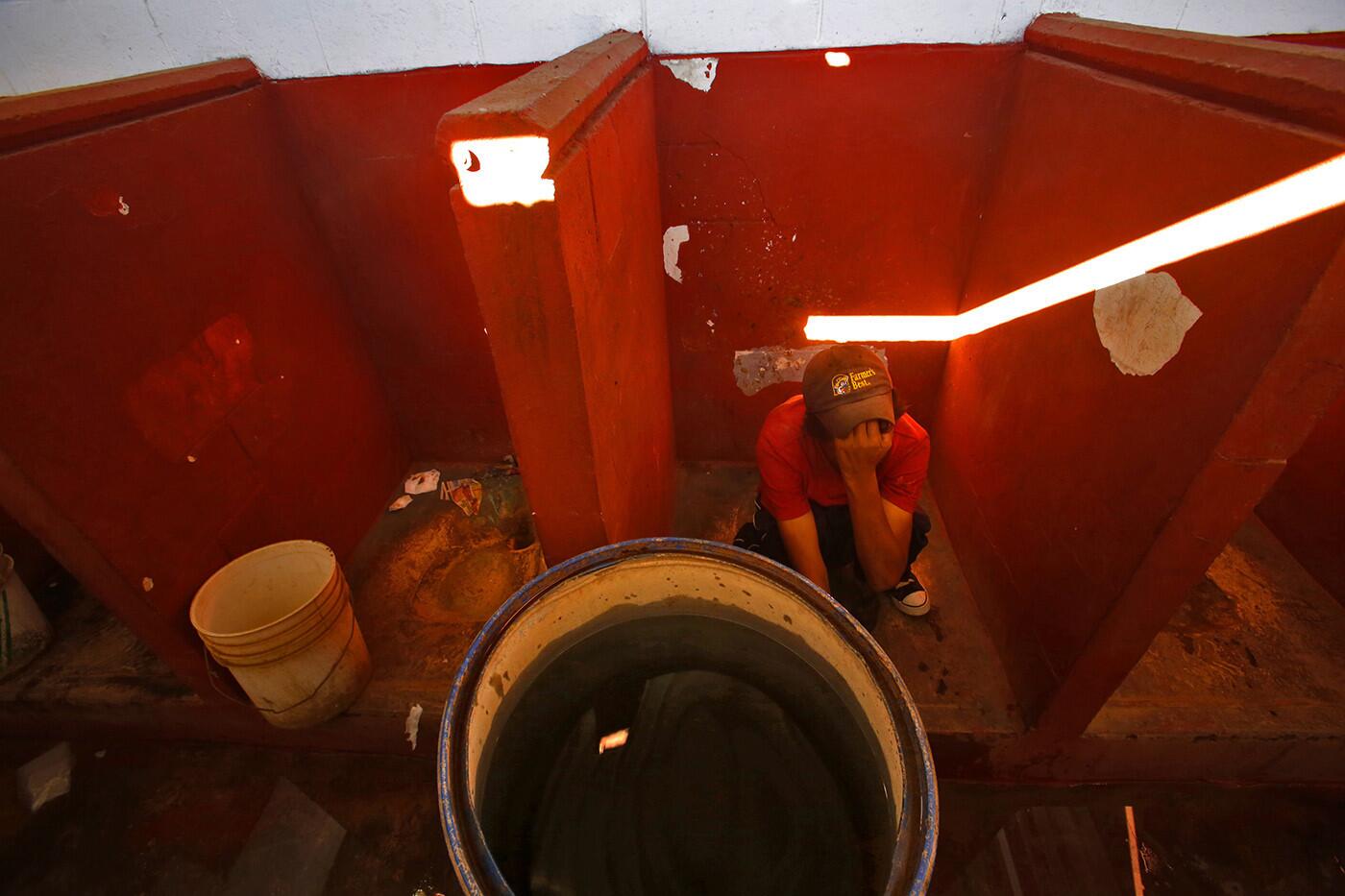
Restrooms at a Farmer’s Best camp have no sit-down toilets, running water or paper. The agribusiness is a major supplier of vegetables for Subway and Walmart. (Don Bartletti / Los Angeles Times)
Advertisement
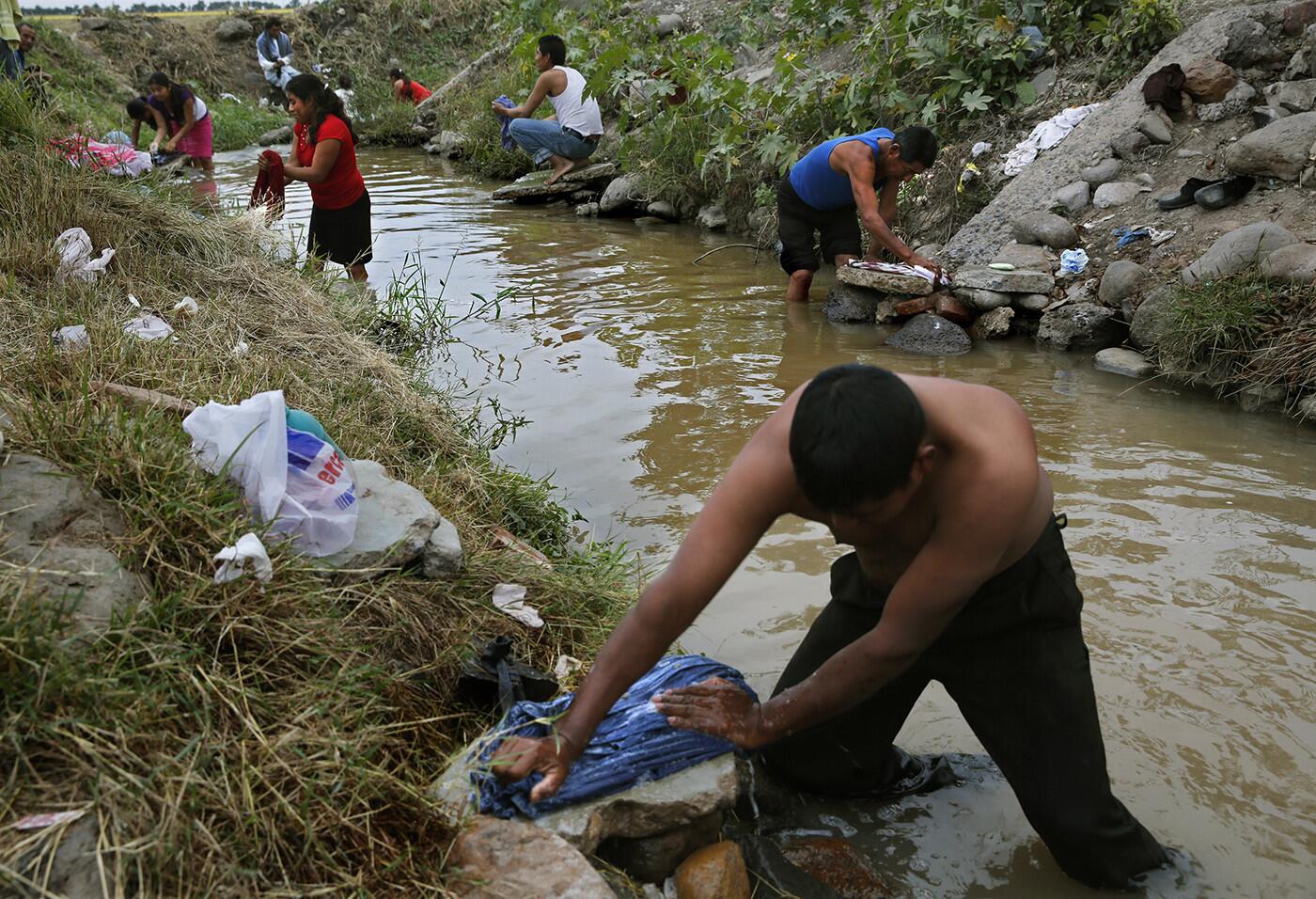
Luis Perez washes clothes in a canal along with fellow laborers from Campo San Jose. When pumped water inside the camp runs out, the murky ditch becomes the laundry basin and bathtub. Snakes have been known to slither by. (Don Bartletti / Los Angeles Times)
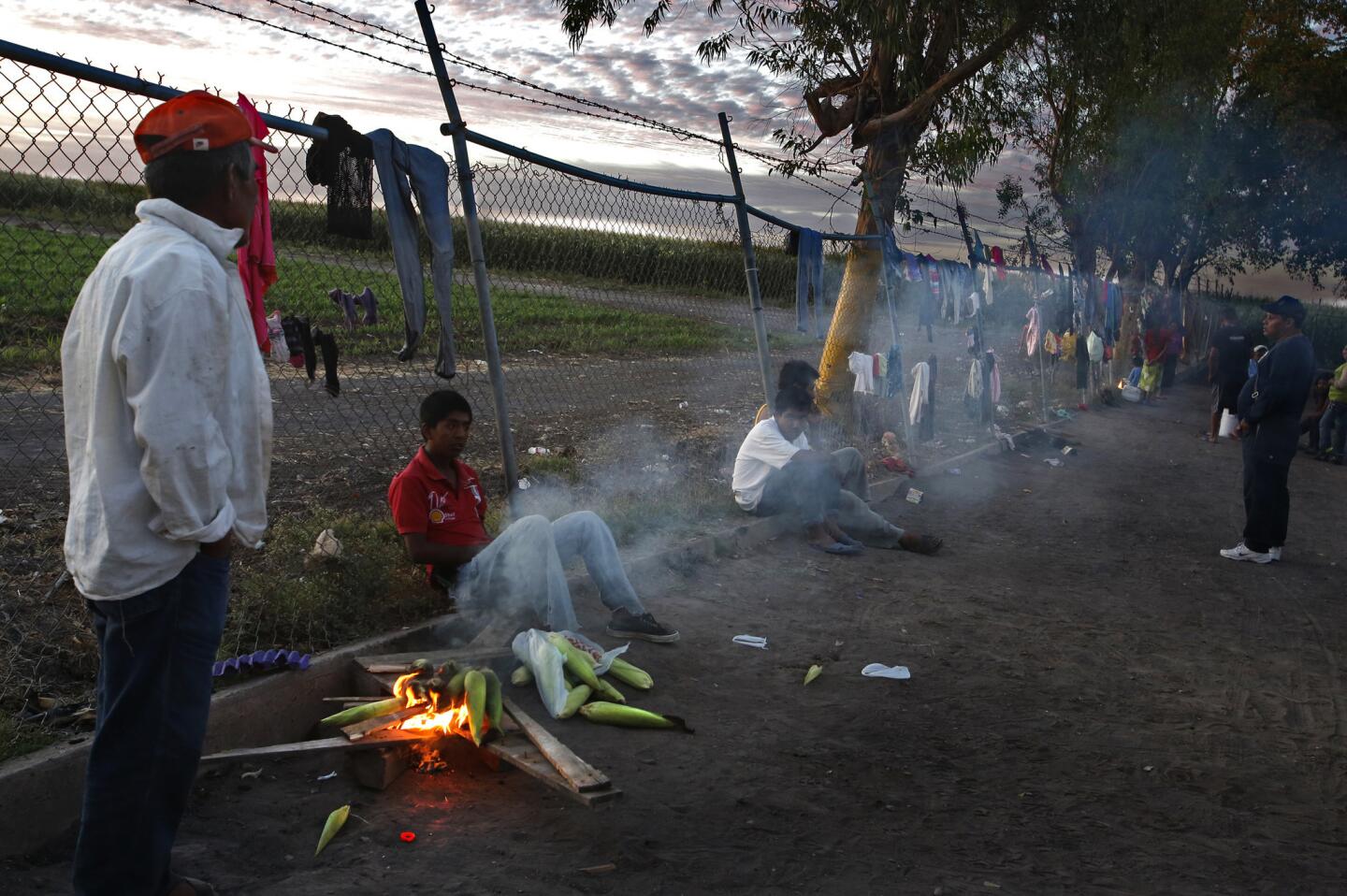
At Campo Isabeles, a resident roasts corn he scavenged from the field in the background. As the harvest season winds down, insufficient work hours did not cover his cost of living. Other migrants who purchase staples on credit from the camp store go home to their pueblos in debt and with empty pockets. (Don Bartletti / Los Angeles Times)
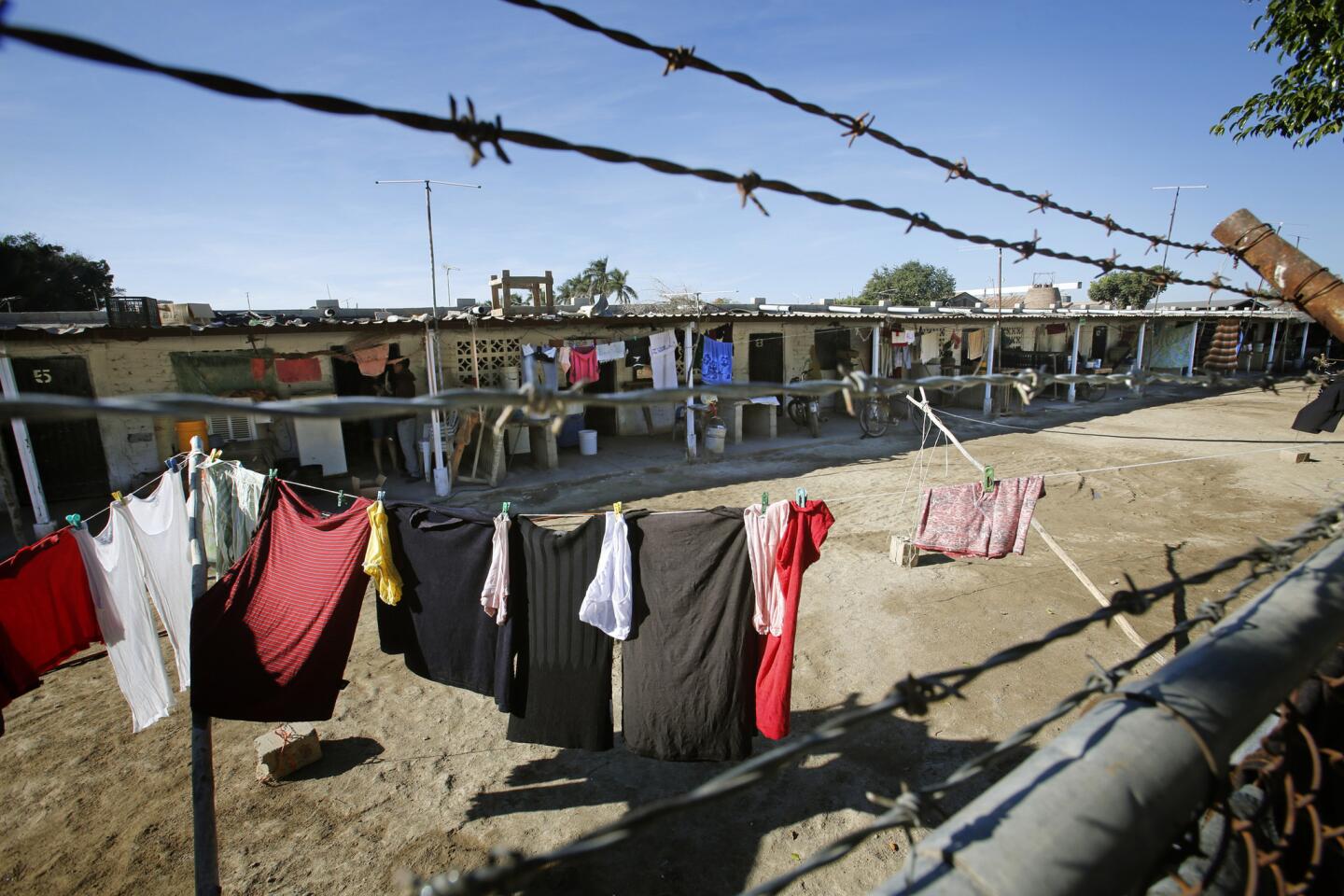
At Campo Sacramento in Guasave, Sinaloa, barbed wire tops the perimeter fence and arrivals and departures are strictly controlled around the clock. The long buildings are divided into 12-by-12 rooms for company workers. (Don Bartletti / Los Angeles Times)







